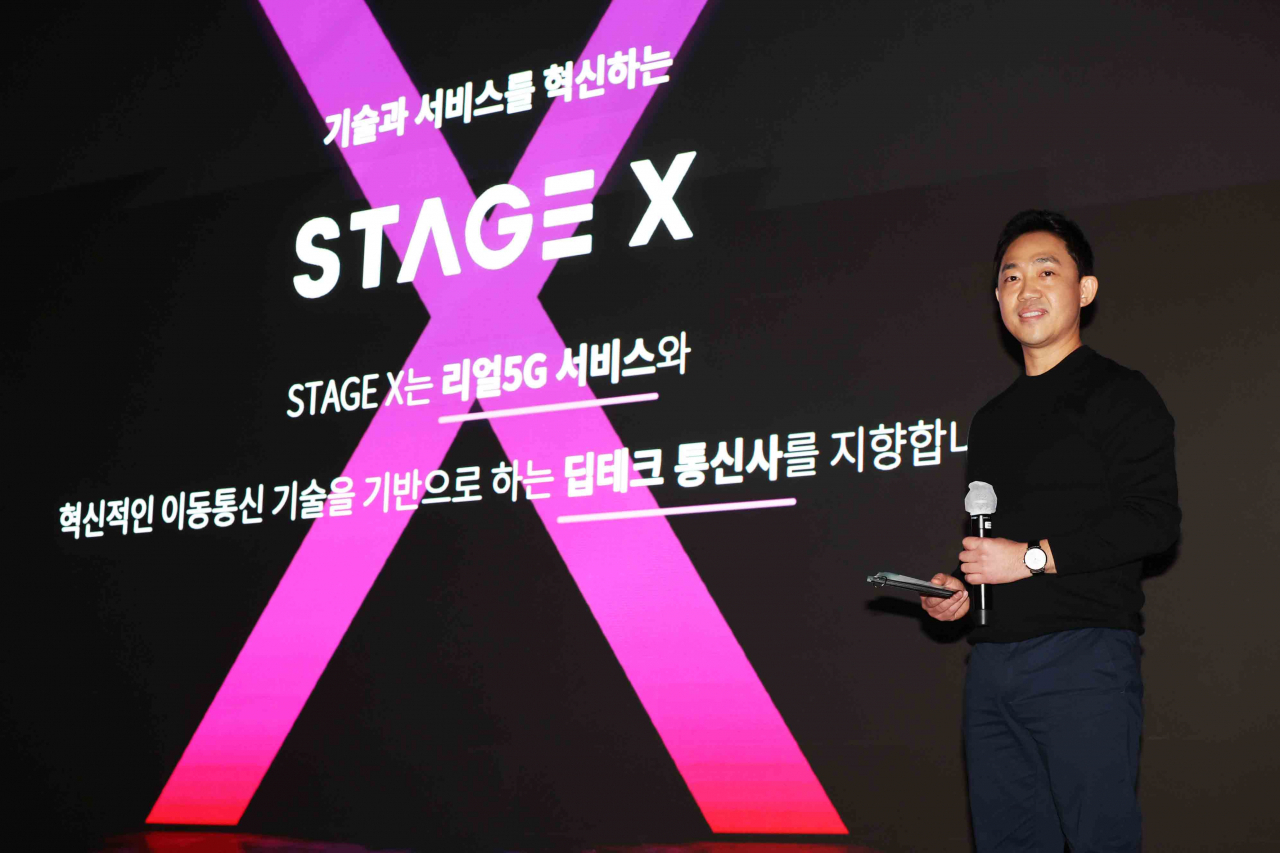 |
Seo Sang-won, representative of new mobile carrier Stage X, a consortium led by Stage Five, speaks during a press conference at a Seoul hotel on Wednesday. (Yonhap) |
Stage X, a consortium comprising Kakao affiliate Stage Five and other unidentified companies, selected as the new operator of the 28 gigahertz band of the fifth-generation network in South Korea, said on Wednesday it would launch a nationwide telecommunications service in the first half of 2025.
“We aim to become a new deep-tech telecom company that innovates technology and services,” Seo Sang-won, representative of Stage X, said in a press briefing in Seoul, after the consortium became the country’s fourth mobile carrier on Jan. 31.
After establishing a corporation within the second quarter of this year, Stage X plans to invest 612.8 billion won ($462 million) in the initial cost of establishing the service, including its winning bid and infrastructure cost to build its required 6,000 base stations across the country within the first three years.
For the plan, it has secured an initial capital of 400 billion won and the consortium looks to attract another 200 billion won in Series A funding before launching the service, the Stage X chief said.
The initial spending is about 5.5 percent of the 5G investment amount of other telecom giants, he said. The costs saved will be invested in customer benefits and research and development to play a leading role in technological development.
Stage X won the 28 GHz band on the fifth day of an auction against Sejong Telecom and Mobile Consortium, with a bid of 430.1 billion won. The winning bid was five times larger than the starting price of 74.2 billion won, the Ministry of Science and ICT said.
The consortium will become the nation's first new telecom carrier in 22 years. The government has tried to create one since 2010, eventually succeeding on its eighth attempt.
In the previous auction in 2018, the country's three major mobile carriers -- SK Telecom, KT Corp. and LG Uplus -- won the same spectrum in the low 200 billion-won range, but they lost the license last year due to insufficient investment.
Stage X believes the 28 GHz frequency would have the advantage of ultra-high speed, ultra-low latency and ultra-high connectivity in distributing data traffic in population-dense areas, including venues such as hospitals, schools and airports.
With the edge of being the country's sole 5G 28 GHz service operator, it looks to provide cheaper telecom services to users while generating bigger profits by running the entire core network responsible for operation of the service in the cloud and using artificial intelligence for all services, from network quality management to customer service.
Stage X targets achieving 1 trillion won in sales with a net profit within the next three years.
Seo also said the consortium will cooperate with Samsung Electronics and Apple to introduce the two tech giant's smartphone models that support the 28 GHz spectrum in North America to Korea. He further hinted that the development of a smartphone specifically for Stage X with Taiwan's Foxconn electronics manufacturer will be soon underway.
"We aim to launch the industry's first super-app in the telecom market by maximizing these various experiences," the Stage X chief said. "After successfully running the 28 GHz spectrum-based business, we'll secure additional mid- to low-band frequencies to build our own network."







![[Today’s K-pop] Blackpink’s Jennie, Lisa invited to Coachella as solo acts](http://res.heraldm.com/phpwas/restmb_idxmake.php?idx=644&simg=/content/image/2024/11/21/20241121050099_0.jpg)